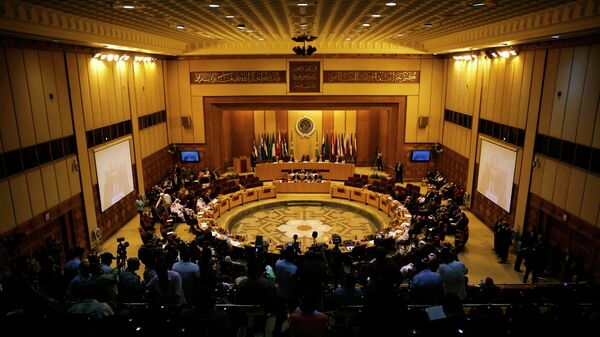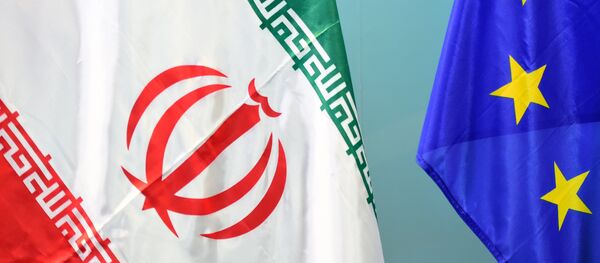S-300 Deliveries to Syria to Help Make Russia Reliable Arms Supplier, Friend
On Monday, Russian Defense Minister Sergei Shoigu said that Russia would take a number of measures to boost the safety of its troops in Syria, including the deliveries of the S-300 system, in the wake of the Il-20 crash.
"From the point of view that it [S-300] is keeping the balance between Syria and Israel, I think it is better for Syria and for other Arab countries because … they are looking forward to having more advanced weapons to protect their own security and this is to give a proof that Russia is a reliable source [of weapons] for the Arab world as a friend," Jaber said.
READ MORE: In S-300s We Trust
On September 17, the Il-20 plane was downed by a missile launched by Syria's S-200 air defense system. The Syrian system was targeting Israeli F-16 jets that were attacking the facilities in the Syrian province of Latakia. According to the Russian Defense Ministry, Israel notified Russia of its operation only a minute before the attack.
Russia has blamed the incident, which claimed the lives of 15 troops, on Israel and said that the Israeli Defense Forces (IDF) used the Russian Il-20 as a shield.
Dialogue Instead of Sanctions on Iran
On Monday, the European Union said it would set up a special payment channel so that European and other countries could keep up trade with Iran despite US extraterritorial sanctions.
"So we should find a better way to have more dialogue, to modify the behavior of the countries which we do not like through the exchange of views rather than sanctions," Jaber said when asked about the EU plan to bypass the US sanctions regarding Iranian oil trade.
The LAS representative added that sanctions were hurting not only the government but all of the people.
Jaber cited different examples of sanctions being used in such countries as Turkey and China.
"I don't think it will help the free trade," the LAS representative said.
READ MORE: Trump Threatens Syria, Slams Iran in UN General Assembly Address
The second portion of sanctions, concerning sales of oil and related products, will be reinstated on November 4.
Arab League Welcomes Russian-Turkish Agreement on Syria's Idlib
Last week, Presidents Vladimir Putin of Russia and Recep Tayyip Erdogan of Turkey agreed to set up a demilitarized zone in Idlib by October 15 to avoid large-scale civilian casualties that an anti-terrorist operation there might cause.
"[This has] been most welcome in our countries. We think that this avoid[s] the tragedy [including] civilian casualties. But it is important how Turkey is able to deliver their promises, whether they are able to convince the extremists to deliver heavy weapons… It is important to implement this agreement on the ground," Jaber said.
READ MORE: Lavrov: Russia-Turkey Deal on Idlib Just Interim Step
The LAS believes in the importance of the political process in Syria, the ambassador said.
"Of course we should at the beginning fight terrorist groups to exclude them, and those in the resistance which been accepted by the government could be part of the solution," Jaber said.
The armed conflict has been ongoing in Syria since 2011, but last year the focus has shifted from fighting terrorists to a political settlement.



